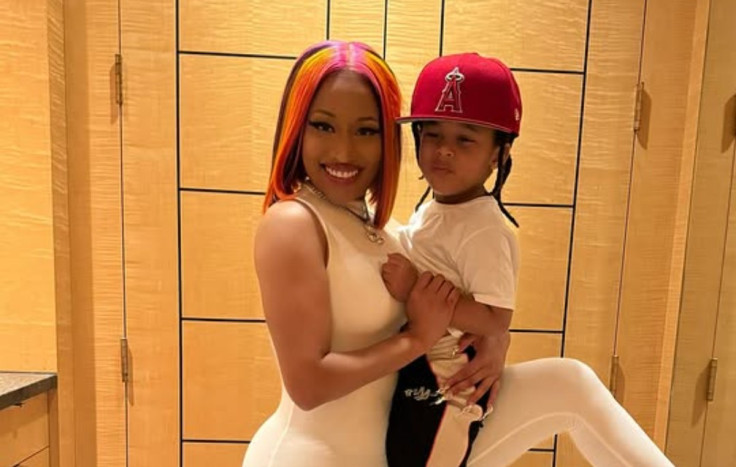
Cardi B has sparked backlash after making comments about Nicki Minaj's son during their ongoing feud. The exchange, which unfolded across social media this week, saw Cardi B accuse the child of being non-verbal and use the word 'slow', prompting widespread speculation and outrage.
Fans are now asking whether Nicki Minaj's son has autism, although the rapper has never confirmed any such diagnosis.
A Longstanding Rivalry Between Two Rap Stars
Nicki Minaj and Cardi B's rivalry has spanned several years, with disputes often spilling onto public platforms. Their disagreements have included industry competition, lyrical jabs, and heated exchanges online. The latest round of conflict has taken a personal turn, moving beyond the artists themselves and drawing in family members.
Cardi B's Remarks About Nicki Minaj's Son
During the most recent online argument, Cardi B accused Nicki Minaj's son, known publicly as Papa Bear, of developmental delays. In one post, she alleged that he 'can't speak and [is] banging spoons because your mum couldn't put the drugs down'. She also described the three-year-old as 'tippy toeing around the house' and called him 'slow'.
Papa Bear I'm sorry you can't speak and banging spoons because your mom couldn't put the drugs down... I'm sorry your mom not even paying attention to you on your own birthday cuz she such a obsessed and dark spirted hating ho.. I'm so sorry
— Cardi B (@iamcardib) October 1, 2025
You said fuck Vulture what??? Bitch fuck that slow ass son that came out your pussy.. you was wishing so much negativity on me while I was pregnant and look at your karma... look what your rotten pussy produced!! Now he a whole 5 year old tippy toeing around the house and can't...
— Cardi B (@iamcardib) October 1, 2025
The remarks suggested that alleged prenatal drug use by Minaj may have contributed to her son's development. The direct language, including claims of non-verbal behaviour, ignited speculation about whether the child has autism.
Backlash and Public Outcry
The reaction to Cardi B's comments was swift. Many fans and advocacy groups condemned her for using ableist language and involving a child in a celebrity feud. Social media platforms such as X and Reddit hosted discussions where users criticised the rapper for 'weaponising disability' during a personal conflict.
One X user wrote: 'Y'all two grown woman talking about Poot innocent children like that embarrassing y'all need to be ashamed of yourself,' reflecting broader frustration with both artists for letting their disputes affect their children's public image.
Autism advocacy accounts also raised concerns that remarks like 'slow' contribute to stigma and spread harmful stereotypes.
Autism Speculation Remains Unconfirmed
Despite the speculation prompted by Cardi B's comments, there is no public confirmation that Nicki Minaj's son has autism or any developmental condition. Nicki Minaj has never spoken publicly about her son's health beyond sharing occasional family photographs on social media.
Medical experts emphasise that speech delays are not always linked to autism and can occur for many different reasons. A child's language development varies, and non-verbal behaviour at a young age is not by itself evidence of a diagnosis.
Without confirmation from Minaj or her representatives, claims about her son's health remain unverified.
Concerns Over Privacy and Ableism
The controversy has also reignited debate over the privacy of celebrity children. Critics argue that using children in arguments between public figures risks unnecessary exposure and can affect how the public perceives them.
Autism organisations have underlined the impact of ableist insults in public discourse. Labelling a child as 'slow' or speculating about their condition without evidence can perpetuate misinformation and create additional stigma for families with autistic children.
This incident highlights the broader consequences of celebrity disputes entering personal territory. While Minaj has not addressed the claims directly, the backlash against Cardi B demonstrates the sensitivity of discussions about developmental conditions, particularly when they involve young children.







